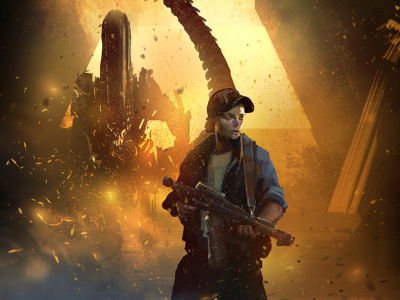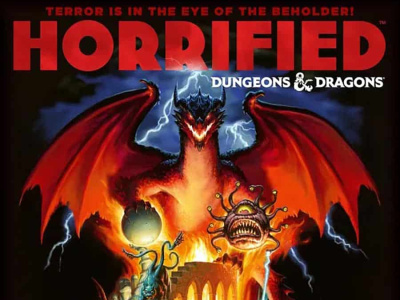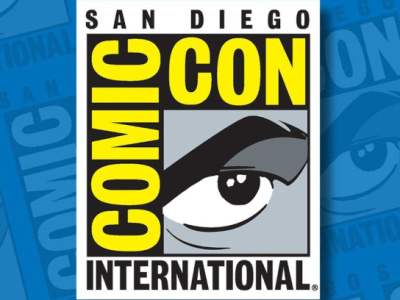 Get In The Game is a new column by Dan Yarrington, managing partner of Myriad Games in Manchester and Salem, New Hampshire. This week, Yarrington shares the lessons he learned at PAX East.
Get In The Game is a new column by Dan Yarrington, managing partner of Myriad Games in Manchester and Salem, New Hampshire. This week, Yarrington shares the lessons he learned at PAX East.Welcome back to Get In The Game, a column that focuses on proactive ways we can improve the games industry.
While attending PAX East in Boston this past weekend (March 11th, 12th, and 13th), I had ample opportunity to compare the impact and scope of a slice of the video games industry versus the tabletop games industry. It's a simultaneously depressing and inspiring comparison for those of us in the business of unplugged games. We can do so much more to gain mindshare and expand market share within the overall gaming entertainment market, so let’s get to it.
There is a ton of enthusiasm for games and gaming but the tabletop games industry is but a tiny sector within games overall. Tabletop games exist at the intersection of being a small subcategory of toys and a small subcategory of games in general. Most people in the prime 18-34 demographic think of games as video games. But while video games have an ingrained and existential appeal to gamers at ages 40 and younger, an even broader section of the populace is familiar and comfortable with tabletop games. This presents the largest potential growth segment for gaming in general as many people who would not purchase or support video games would jump for the chance to enjoy some "old-fashioned, face-to-face" games. We need to make games classic and cool at the same time, familiar and cutting edge.
Gamers think of themselves as gamers first and foremost, with the exact interface mattering less than the experience of the game. We need to make the tabletop a central part of gaming as a whole, just as central as a screen. Pieces, buttons, boards, pixels, dice, avatars -- no matter the makeup of the components, we need to invest in adventure. Get customers involved in the experience of a game, in all possible incarnations both physical and digital. This is already happening and the process is accelerating. There are digital versions of many popular tabletop games in virtual consoles (Xbox Live Arcade, PlayStation Network, iPhone, iPad, etc). Settlers of Catan, Ticket to Ride, Carcassonne, Magic: The Gathering, and many more have found success and additional revenue streams for publishers from digital incarnations. The most interesting of these are when the games are not straight ports, but innovating new versions of the game, as you see with Duels of the Planeswalkers from Wizards of the Coast.
Even as this digital wave grows ever more pervasive on our portable electronic devices and all throughout our homes, we're finding that gamers are yearning for an analog, tabletop, face-to-face experience. More and more it becomes evident that these styles of play are complementary. I may have Roll Through the Ages on my iPhone to play while I’m waiting in one of the massive lines at PAX, and the physical version to break out at home, around a table, with my friends. Digital versions of games also allow quick access to demos, since the price points are so low and the accessibility is so high. Even smaller publishers like Clever Mojo Games have found success with Alien Frontiers (a $50 big box board game) and an iPhone version of the same title.
Designers need to stop thinking about games as a particular format. We need to design, develop, and market games as fun -- pure and simple -- to be enjoyed in whatever format is most appropriate for that experience. Cryptozoic understands this, as they’re launching an entire platform of game experiences for Lookouts, based on the Penny Arcade comic. In 2011, they have Lookouts coming to their digital comics app. In 2012 they’ll have a deluxe board game, a role playing game, and a digital game for the iPhone, iPad, iPod Touch and Android. That means more points of contact for the customer, more strength for the intellectual property, and a greater chance of expanding the reach of the game experience through multiple nodes within social networks. The more players, the more potential players.
With the larger size and budgets of the video game industry come expectations of higher quality presentation for gaming entertainment. This means that physical games with shoddy components, sub-par artwork, and lackluster packaging and promotion will have a much harder time succeeding. They’re compared with video games and other forms of entertainment and they need to have the sparkle and shine to make them stand out. Publishers ignore these rising standards at their peril. Those that will be the most successful will be the companies that tailor their operations to embrace the new multi-platform play experience, of which tabletop is a unique and integral part.
There’s this enormous, continually growing group of gamers that live, eat, breathe, and revel in game experiences. This conflicts with grognards that wish to preserve one particular style of game experience from yesteryear. They’re all around a big game table, wanting something awesome, looking for something to rival or complement the flash and immersive environments of video games. And whereas video games tend to provide more cinematic and narrative experiences, tabletop games feature a greater stimulus and engagement of the most powerful game engine in existence -- the human imagination.
We need to be at the table side by side with video games, because right now we’re across the room, behind the hot dog vendor, picking up pieces of stale popcorn. We need to kick it up a notch and get in the game, sharing our enthusiasm and passion for tabletop games with the same vigor I saw in evidence at PAX. There was an impressively welcoming atmosphere at the show and a yearning for something just out of reach or beyond the ken of many of the attendees, some of whom had never truly experienced tabletop gaming as a regular part of their entertainment choices. The market is primed, the audience is expanding, the people are ready. It’s up to us to bring the awesome and share our passion. What are you waiting for, Get In The Game!
The opinions expressed in this column are solely those of the writer, and do not necessarily reflect the views of the editorial staff of ICv2.com.







